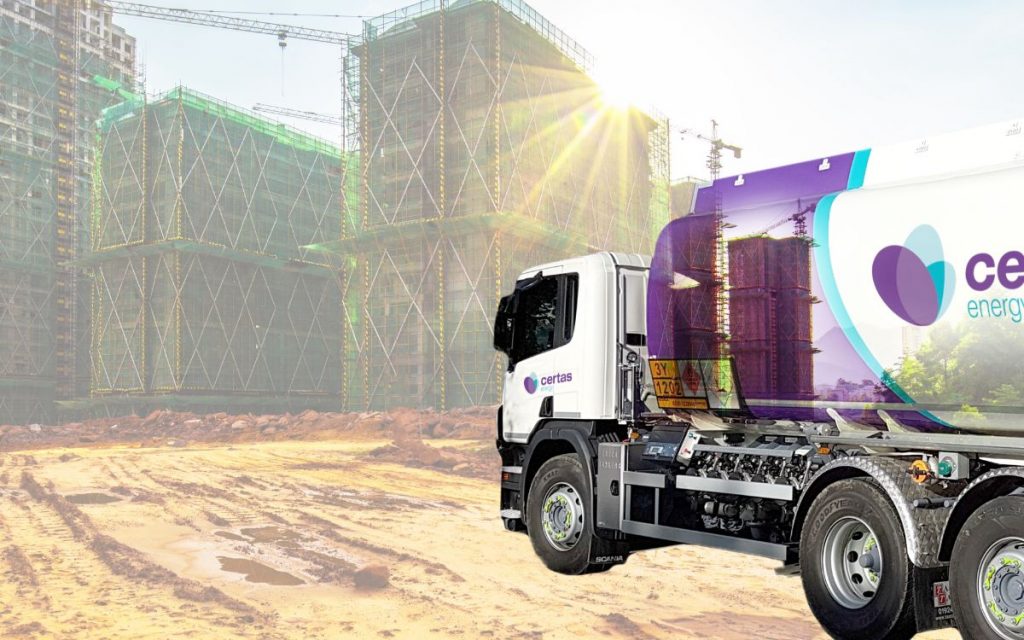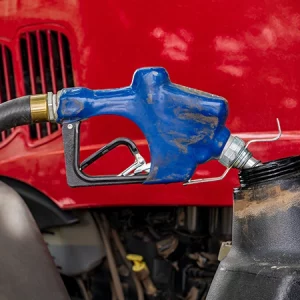From 1 April 2022, many UK businesses will no longer be entitled to use rebated red diesel fuel for commercial reasons, including transport, power generation and heating. This significantly impacts certain industries in particular, such as construction and infrastructure. Certas Energy’s ongoing blog post series explains everything customers need to know about the upcoming changes. Here, we consider the challenge of rising fuel theft, and what businesses need to do to keep their fuel stores safe and secure.
Why are red diesel rule changes leading to greater fuel theft?
According to Alasdair Reisner, chief executive of the Civil Engineering Contractors Association (CECA), diesel theft will become “the new growth industry” in 2022. Red diesel is already a common target for theft: as it receives a high duty rebate, it is relatively inexpensive to buy and store in bulk. It is often held in storage on farms and construction sites, but these are not always well-secured, with fuel storage tanks and plant or heavy equipment sitting exposed and easy for thieves to access.
Red diesel will no longer be permitted for use in the construction industry after the April 2022 deadline. This industry will feel the impact more than most; heavy plant and equipment of all kinds, including NRMM (non-road mobile machinery such as bulldozers and cranes), will no longer be permitted to run on gas oil when used for construction purposes. Using red diesel for heating and power generation on-site will also be prohibited. Subsequently, many users are instead filling their storage tanks with acceptable alternatives, such as unrebated white diesel/DERV, cleaner-burning drop-in fuels, industrial heating oil or kerosene. As DERV and other fuels do not feature the giveaway red dye that designates them for off-road use only, this makes them even more attractive for thieves than red diesel—large stores on poorly-secured sites are likely targets.
So how can business owners keep their site safe and their fuel secure? Here are three top tips from Certas Energy experts:
It’s important to choose external fuel storage tanks with the right security features to prevent theft. There are a range of options to protect your fuel tanks, from FOBs and key codes to lockable cabinet houses. In addition, it’s worth considering portable tanks for jobs at different locations on-site, because they are easy to move around and can be taken back to a secure location to be locked up when not in use. And of course, it’s essential to make sure your tank meets all relevant safety requirements: check out our guide to oil tank regulations for more information.
It is equally important to ensure your worksite itself is well-secured, particularly if you’re on a farm, a construction site or a similarly exposed location. Make sure the site is well-lit and consider investing in CCTV or other security measures such as a guard dog or alarm system. And don’t forget to secure any irrigation pumps—these are a popular target for thieves, who follow pipework back to the pump.
A telemetry system can be fitted wirelessly to your bulk fuel storage tanks, enabling remote fuel monitoring across multiple locations and providing real-time ‘always-on’ reporting. With the right telemetry system, any unusual fuel usage automatically triggers an alert, as a sudden drop in levels may indicate theft or a leak. FuelWise from Certas Energy is managed through an easy-to-navigate digital dashboard accessed by smartphone, laptop or tablet. The digital dashboard displays an overview of liquid levels in every tank across the site: as soon as an unusual drop in fuel levels is detected, an alert is pushed through to every registered device, which could make all the difference for recouping losses whilst the issue is investigated. Five tanks can be remotely managed with the FuelWise mobile app, providing convenience and flexibility for busy fleet and site managers.
Want to know more about how Certas Energy’s solutions can help to prevent fuel theft? Get in touch:








